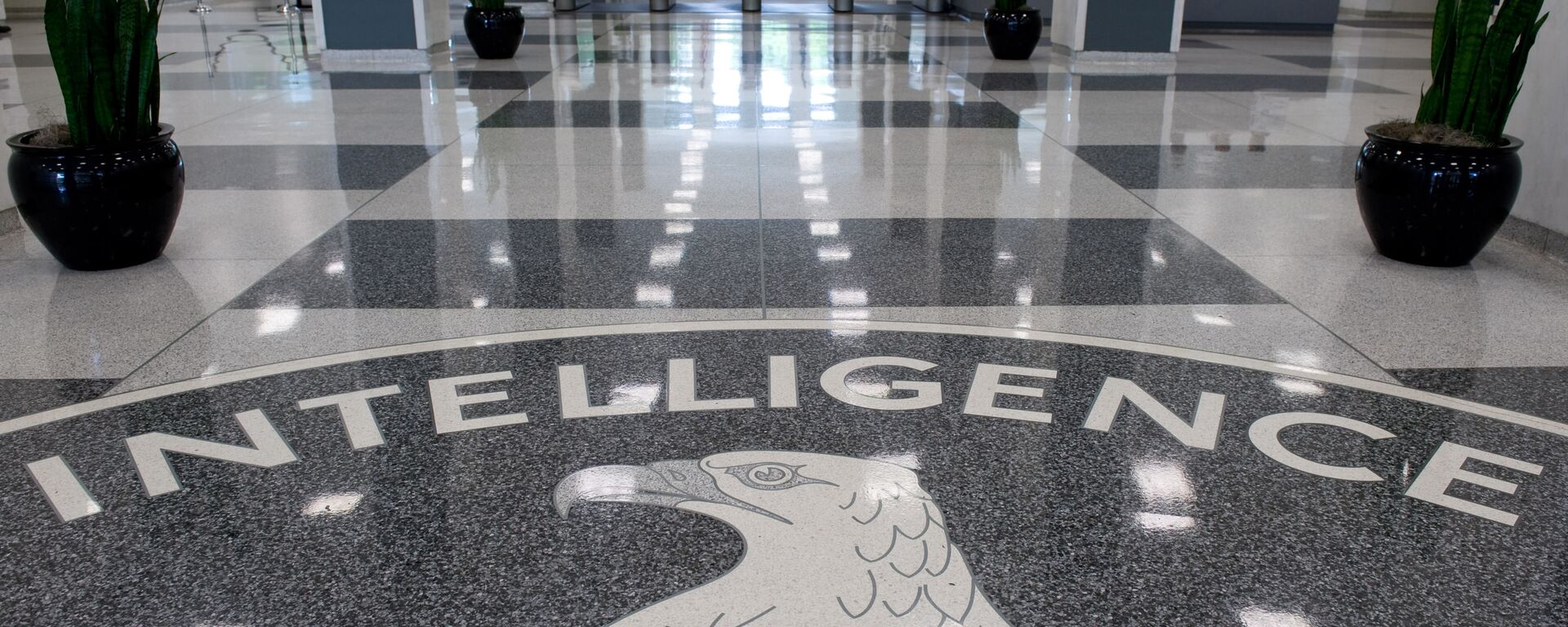https://sputnikglobe.com/20220429/fbi-potentially-searched-millions-of-americans-personal-data-without-a-warrant-1095156953.html
FBI Potentially Searched Millions of Americans’ Personal Data in 2021 Without a Warrant
FBI Potentially Searched Millions of Americans’ Personal Data in 2021 Without a Warrant
Sputnik International
Section 702 was amended to the Foreign Intelligence Surveillance Act of 1978 (FISA) in 2008 and has been reauthorized by Congress twice, once in 2012 and again... 29.04.2022, Sputnik International
2022-04-29T23:24+0000
2022-04-29T23:24+0000
2022-04-29T23:53+0000
fbi
fisa court
foreign intelligence surveillance act (fisa)
nsa surveillance
fisc
https://cdn1.img.sputnikglobe.com/img/103544/52/1035445280_0:97:1024:673_1920x0_80_0_0_fb1478c8146dea03454d66b8e040c110.jpg
The FBI queried data acquired by the National Security Agency (NSA) under section 702 of the FISA Amendments Act of 2008 an estimated 3.39 million times from December 1, 2020, to November 30, 2021, according to a report by the Director of National Intelligence.The NSA uses Section 702 to gather data on foreign terrorism suspects and cyber threats. Ostensibly, the practice is focused on foreign nationals but data on Americans is pulled in whenever they speak to or email a foreign national under surveillance or are mentioned in a conversation by someone under surveillance.That data is saved by the NSA and can be queried by the FBI as part of their investigations in the US. The report does not allege any wrongdoing by the FBI but intentionally or not, showcases the vast amount of data of American citizens that is warrantlessly swept up by intelligence agencies and how much the FBI utilizes that data.The number of actual Americans who have had their data investigated by the FBI is lower than the 3.39 million figure. Not only are some individuals’ information queried more than once but one query could potentially be counted hundreds of times. When the FBI looks through the data they use search terms, sometimes hundreds at a time. When those queries match an American, even if only one search term matches, it is counted as many terms as it is searched. So one time looking at an American’s data could potentially count as hundreds of queries.The law as written only authorizes intelligence agencies to track foreign threats, but Americans' data is gathered, stored and sometimes eventually searched, through what intelligence agencies call “incidental collection.”The Electronic Frontier Foundation, a pro-privacy organization, argues that the collection is anything but accidental. “The fact that Section 702 surveillance regularly results in the collection and search of innocent Americans’ communications is an intended and inherent part of the system,” a blog post by the organization says. “That means the government casts a spying net that routinely catches the communications of law-abiding Americans, who are protected by the Fourth Amendment’s privacy protections.”In 2018, the Foreign Intelligence Surveillance Court (FISC) said they found that the FBI searched the data in a way that violated some Americans’ constitutional rights. In response, the FBI instituted policy changes intended to increase compliance.Despite that, the FBI has been increasingly active in using Section 702 in its investigations. It queried the data only 1.3 million times from December 1, 2019, to November 30, 2020. Last year’s totals represent an increase of over 160% from the year before.The report also mentioned four times that the report identified when the FBI should have asked the FISC court for approval before searching, but did not. Approval from the secretive FISC court is seen as a mere formality; in its history, it has only denied 85 cases out of 41,222 requests, i.e. about 0.2% of the time.Despite its record of being a rubber stamp, the FBI has not requested approval from the FISC court since it became a requirement in 2018.Unlike previous reauthorizations, Section 702 is expected to be a hotly contested topic in Congress next year.
https://sputnikglobe.com/20220211/senators-uncover-secret-cia-programme-collecting-americans-data-without-any-oversight-1092937188.html
Sputnik International
feedback@sputniknews.com
+74956456601
MIA „Rosiya Segodnya“
2022
News
en_EN
Sputnik International
feedback@sputniknews.com
+74956456601
MIA „Rosiya Segodnya“
Sputnik International
feedback@sputniknews.com
+74956456601
MIA „Rosiya Segodnya“
fbi, fisa court, foreign intelligence surveillance act (fisa), nsa surveillance, fisc
fbi, fisa court, foreign intelligence surveillance act (fisa), nsa surveillance, fisc
FBI Potentially Searched Millions of Americans’ Personal Data in 2021 Without a Warrant
23:24 GMT 29.04.2022 (Updated: 23:53 GMT 29.04.2022) Section 702 was amended to the Foreign Intelligence Surveillance Act of 1978 (FISA) in 2008 and has been reauthorized by Congress twice, once in 2012 and again in 2018; it is set to expire at the end of 2023 unless Congress authorizes it again.
The FBI queried data acquired by the National Security Agency (NSA) under section 702 of the FISA Amendments Act of 2008 an estimated 3.39 million times from December 1, 2020, to November 30, 2021, according to
a report by the Director of National Intelligence.
The NSA uses Section 702 to gather data on foreign terrorism suspects and cyber threats. Ostensibly, the practice is focused on foreign nationals but data on Americans is pulled in whenever they speak to or email a foreign national under surveillance or are mentioned in a conversation by someone under surveillance.
That data is saved by the NSA and can be queried by the FBI as part of their investigations in the US. The report does not allege any wrongdoing by the FBI but intentionally or not, showcases the vast amount of data of American citizens that is warrantlessly swept up by intelligence agencies and how much the FBI utilizes that data.
The number of actual Americans who have had their data investigated by the FBI is lower than the 3.39 million figure. Not only are some individuals’ information queried more than once but one query could potentially be counted hundreds of times. When the FBI looks through the data they use search terms, sometimes hundreds at a time. When those queries match an American, even if only one search term matches, it is counted as many terms as it is searched. So one time looking at an American’s data could potentially count as hundreds of queries.
It is unclear from the report why the FBI tallies the data in that way, something that is not lost on Oregon Senator Ron Wyden “For anyone outside the U.S. government, the astronomical number of FBI searches of Americans’ communications is either highly alarming or entirely meaningless,” he told The Wall Street Journal. “Somewhere in all that over-counting are real numbers of FBI searches, for content and for noncontent—numbers that Congress and the American people need before Section 702 is reauthorized.”
The law as written only authorizes intelligence agencies to track foreign threats, but Americans' data is gathered, stored and sometimes eventually searched, through what intelligence agencies call “incidental collection.”

11 February 2022, 11:54 GMT
The Electronic Frontier Foundation, a pro-privacy organization, argues that the collection is anything but accidental. “The fact that Section 702 surveillance regularly results in the collection and search of innocent Americans’ communications is an intended and inherent part of the system,” a
blog post by the organization says. “That means the government casts a spying net that routinely catches the communications of law-abiding Americans, who are protected by the Fourth Amendment’s privacy protections.”
In 2018, the Foreign Intelligence Surveillance Court (FISC) said they found that the FBI searched the data in a way that violated some Americans’ constitutional rights. In response, the FBI instituted policy changes intended to increase compliance.
Despite that, the FBI has been increasingly active in using Section 702 in its investigations. It queried the data only 1.3 million times from December 1, 2019, to November 30, 2020. Last year’s totals represent an increase of over 160% from the year before.
The report also mentioned four times that the report identified when the FBI should have asked the FISC court for approval before searching, but did not. Approval from the secretive FISC court is seen as a mere formality; in its history, it has only denied 85 cases out of 41,222 requests, i.e. about 0.2% of the time.
Despite its record of being a rubber stamp, the FBI has not requested approval from the FISC court since it became a requirement in 2018.
Unlike previous reauthorizations, Section 702 is expected to be a hotly contested topic in Congress next year.




